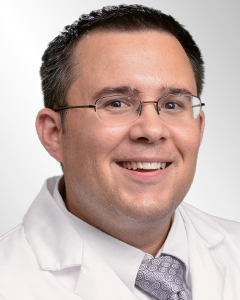How to Recognize and Prevent 5 Diseases That Hit Men Hard
Perhaps this comes as no surprise, but not all diseases and ailments will affect men and women in the same ways. Some will affect men more severely or even strike at an earlier age. By learning more about what these specific diseases are, however, men are able to seek earlier treatment for any recognizable or noticeable symptoms. Taking precautionary measures will allow them to maintain good health.
Heart Disease
According to the Centers for Disease Control and Prevention (CDC), heart disease is the leading cause of death for men in the U.S., accounting for one in four deaths. Men also have the vast majority (from 70 percent to 89 percent) of sudden cardiac events.
Risk factors for heart disease include high blood pressure, high cholesterol and smoking, along with diabetes, obesity, poor diet, lack of exercise and overuse of alcohol.
Some risk factors can be reduced with lifestyle changes, such as quitting smoking, limiting alcohol, eating a heart healthy diet and incorporating exercise. Losing excess weight, in conjunction with healthy eating, may also improve your blood pressure, cholesterol and insulin levels.
Substance Abuse
Men are more likely than women to use nearly all types of illegal drugs, to go to the emergency room because of that use and to die from overdose. Substance abuse also can be a sign of depression—an illness that men are less likely to seek diagnosis and treatment for. The Surgeon General recommends avoiding binge drinking and using illicit drugs, and suggests seeking help from your doctor if you are concerned about substance abuse.
Suicide
Although suicide is not classified as a disease, illnesses such as depression can be a precursor. Suicide is the 10th leading cause of death in the U.S., and men die by suicide 3.53 times more often than women. Depression in men is often not diagnosed and may not appear as stereotypical sadness but as anger, isolation, alcohol or drug abuse, or escapist or risky behavior. Men also may be reluctant to seek help for depression or suicidal thoughts, which makes getting effective treatment more difficult.
If you’re thinking about hurting yourself, get help: call 911. Or talk with a trained counselor at the National Suicide Prevention Lifeline at 1-800-273-TALK (1-800-273-8255). Reach out to your doctor, family member or friend for ideas for more help.
Skin Cancer
Among the cancers that affect both genders, some types affect men more. Skin cancer, for example, affects men—especially those with lighter skin—more than anyone else. What’s more, men are more likely to develop melanoma, the most serious type of skin cancer—and die from it.
Some of this disparity may come from a lack of knowledge. A survey from the Skin Cancer Foundation found many men did not know the signs of skin cancer or how to protect themselves from ultraviolet (UV) rays.
Lifestyle adjustments such as staying out of the sun between 10:00 am and 4:00 pm, wearing UVA/UVB sunscreen, covering your skin with clothing and getting an annual professional skin exam from your doctor can reduce your risk.
Respiratory Illnesses

The “man flu” is real. Men may be more susceptible to complications from respiratory illnesses because their immune system is weaker, researchers say. It doesn’t help that men may be less responsive to flu vaccines than women. But getting sick is no joke. Other studies show men are more likely to be hospitalized for flu symptoms than women and are slightly more likely to die from a respiratory illness.
The CDC recommends three actions to minimize or avoid symptoms of the flu:
- Get the flu vaccine.
- Prevent the spread of germs by washing your hands; covering your nose and mouth when you sneeze or cough; and avoiding close contact with sick people.
- Take flu antiviral drugs if prescribed by your doctor to help lessen your symptoms or shorten their duration.
Being aware of these diseases and knowing how to reduce your risk factors can keep these illnesses from knocking you off course.
We Build Relationships
We believe that maintaining a healthy lifestyle is the key to living a longer, healthier life. Orlando Health Physicians strive to build a relationship with each patient. Request an appointment with one of our primary care physicians with offices located throughout Central Florida.
Schedule an Appointment










